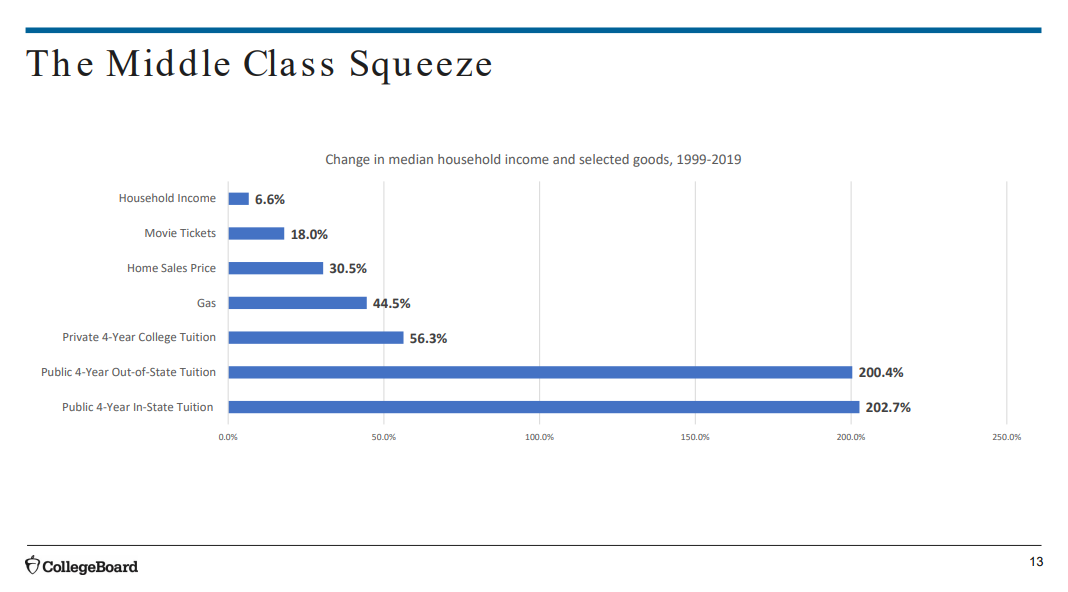Affordability and Today’s Middle-Income Families
According to the U.S. Census, the median household income in 2019 was $68,703. Middle income families are also decreasing from 1970 to 2010, the percentage of U.S. income that went to the middle-income group decreased from 62% to 45%.
During College Board’s Forum session entitled, “Affordability and Today’s Middle-Income Families,” panelists from the University of Michigan and Carlton College discussed the critical question of how middle-income families will afford higher education expenses.
Many middle-income families do not qualify for need-based aid or financial grants, but many are also unable to pay for rising tuition costs without taking out loans. This session discussed the term “the middle-class squeeze.” This refers to the negative trends in standard of living conditions of the middle class of the population while average income levels remain stagnant relative to the rising cost of goods and services, such as education, housing, childcare and healthcare.
Schools such as Carleton College and University of Michigan are deeply aware of this issue of affordability and are working to help make their programs more accessible for middle-income students.
Carleton College has set up a strategic plan to ensure a meaningful amount of grant aid is awarded to students. Since implementing this strategy in 2012, their number of middle-income students receiving financial aid has doubled.
University of Michigan has a scholarship program, Go Blue Guarantee, which is awarded to in-state residents with a household income under $65,000. These eligible students receive full coverage of tuition and mandatory fees for up to four years.
The practical solutions shared by the panelists provided an insight into how higher ed can take action to support middle income families, and the progress being made to address the important issue of continuing to serve the middle class.
